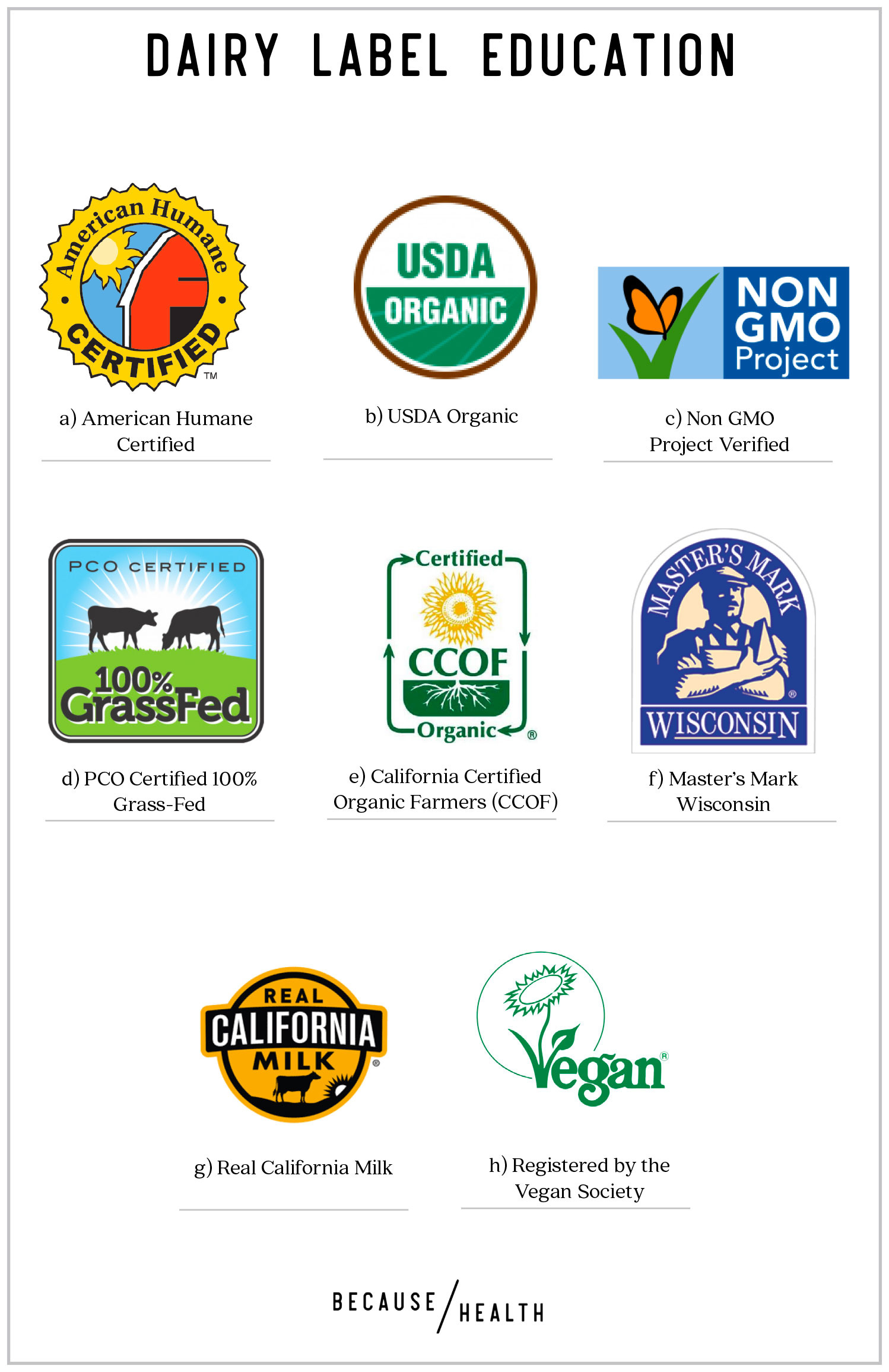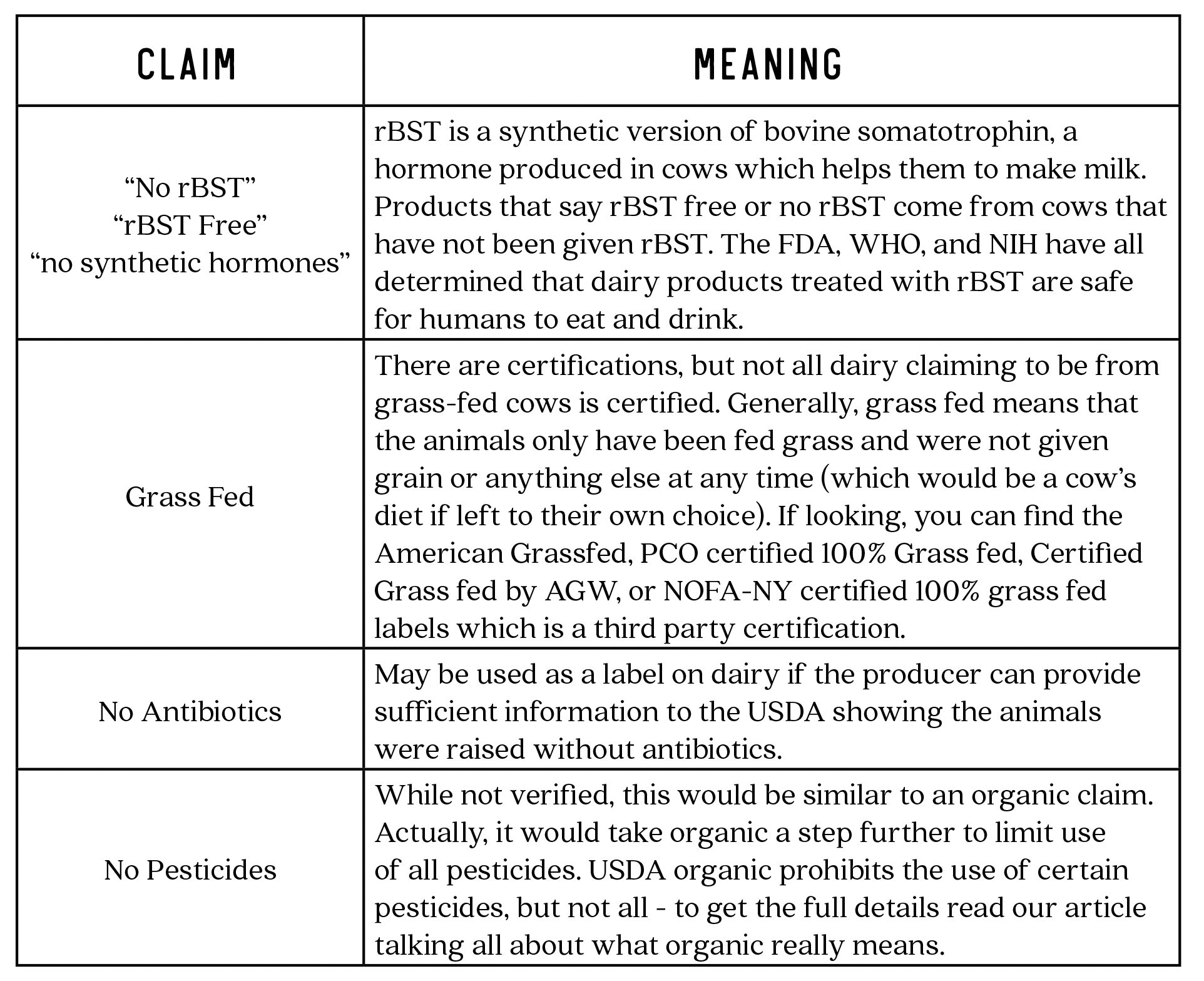Label Education: Dairy
clearing up the difference between grass fed, organic, and California milk
Whether you are just picking up a gallon of milk to pour on your morning cereal or selecting the perfect cheese for your weekend dinner party, knowing what those different labels on your dairy products means can help you make the best choice. And not just on products that come from cows, we looked at the popular milk alternatives and vegan products too. So, no matter what you’re grabbing from dairy aisle, we’ve got you covered.
Certifications

a) American Humane Certified
This certification assures the level of care for the animals. Their five freedoms of animal welfare include freedom from hunger and thirst; discomfort; pain, injury or disease; fear and distress; and, to express normal behaviors. Their standards address areas including nutrition, sanitation, space allowances, transportation, and slaughter.
b) USDA Organic
When it comes to organic diary, this means the herd has either been tranistioned once to all organic feed, which is a year long process, or the herd has only been fed organic feed. For pasture, the fields must meet standards for organic. These standards state that no prohibited substance has been applied to the pasture for at least three years.
c) Non GMO Project Verified
Non-GMO project verified requires that the product have systems in place that address testing, traceability, segregation, formulation, labeling and quality assurance. The certification assures meaningful ongoing testing of high GMO risk inputs, and that organizations are effectively working to minimize the risk of GMO contamination to the chain.
d) PCO Certified 100% Grass-Fed
Requires that the cattle were fed only grass and forage with no grain. They must also meet USDA organic standards.
e) California Certified Organic Farmers (CCOF)
When you see this certification on dairy products, it means that the cows were fed only organic feed throughout their lives.
f) Master’s Mark Wisconsin
This is a certification of the cheesemaker, noting that they have partaken in a rigorous set of study relating the art of making cheese. The cheesemakers have minimum of 10 years experience, a 3 year apprenticeship, have made the variety of cheese they are certified in for at least 5 years, and have taken classes and passed a rigorous written test.
g) Real California Milk
This is a certification stating that the milk (or the milk used to make the dairy product) comes 100% from cows and farms in California (where the happy cows live, apparently).
h) Registered by the Vegan Society
The vegan society created the word vegan in 1944 and now has trademark standards that it uses to evaluate eligible products. To be certified, products may not include anything from an animal, any animal ingredients, any animal testing, any genetically modified organisms, and must meet kitchen and hygiene standards which protect against cross contamination.
Label Claims

